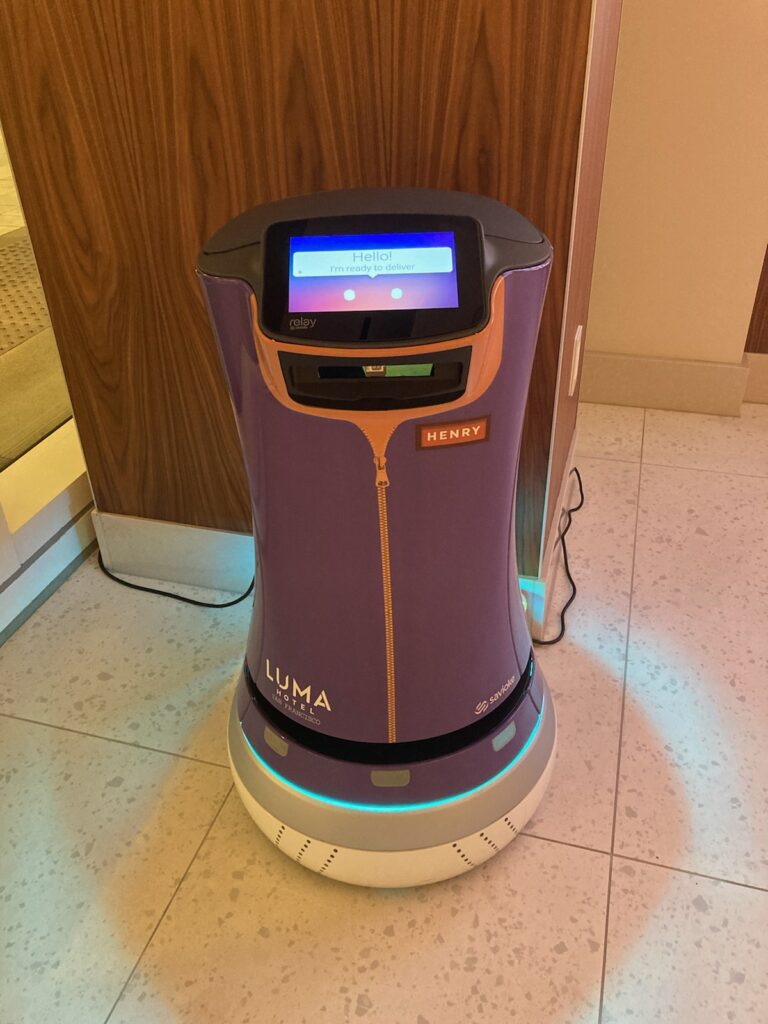
Robots Out West
11/7/2022
To help take your mind off this week’s election, please allow me to introduce Henry. You might have met him already. My first experience with this robot was last weekend at a hotel in San Francisco. While in the city I was also able to acquaint myself with Henry’s more athletic cousins: Waymo and Zoox, which both drive restlessly round the streets like some frantic tourist seeking to cover all 2,343 things to do (as identified by TripAdvisor). And like the frantic tourist, there seems to be very little to show for it so far.
Anyway, back to Henry… this robot is an example of the efforts being made to ‘improve’ hospitality through the deployment of autonomous machines. I do not want to be unkind to Henry, but he was not at the cutting edge of what might be possible. His role was limited to delivering items like extra towels to rooms. The justification of Henry’s deployment seems to be saving labor costs and reducing the need for new hires in the current tight labor market. There is also some research that suggest robots like Henry will improve customer service. I am not so sure. Even sharing an elevator with a silent blinking robot is a somewhat eerie experience.
A more advanced example of hospitality-focused technology are hotel chatbots equipped with artificial intelligence. According to Metasphere Technologies, these chatbots can relieve hotel staff of “mundane, repetitive, and time-consuming questions.” That might sound OK to executives of hotel chains, but from the customer’s perspective, my questions rarely feel mundane and having them answered by a machine does not sound like a step forward.
I think more promising areas for robotic support are cleaning and housekeeping. Here the functions are mostly about completing physical tasks as opposed to navigating potentially tricky interactions with hotel guests. Some clever programmers will have to work out how equip the robots to navigate efficiently around hotel rooms and bathrooms. Hopefully that should be a shorter process than the seemingly endless training program for Waymo.
Allied Market Research estimates the global hospitality robotics market will exceed $3 billion dollars by 2030. That estimate might have been somewhat inflated by the impact of the pandemic, when human interactions were sometimes less desirable, and the recent difficulty of recruiting staff. Nonetheless there seems to be plenty of potential for hotels which prize cost-effectiveness and efficiency to reduce their dependence on people. From a branding perspective it will be interesting to see whether the automation of hospitality will result in a more clearly defined market segment, where hotel management and guests are more comfortable with interactions with machines than service provided by people.
From my old-fashioned perspective, hospitality is about its literal meaning – the generous and friendly treatment of visitors and guests. I doubt I will ever become fully adjusted to being greeted by a robot at the front desk. Of course, if I become a regular visitor to San Francisco, I might have no choice.
Richard Rushton


